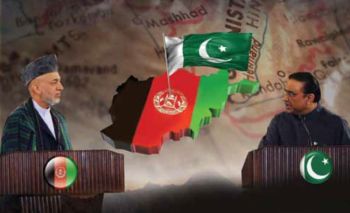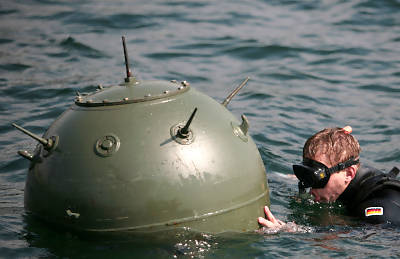Events in Afghanistan have a critical impact on India’s Internal Security because as Robert Gates, former Director CIA and then US Defense Secretary, said some years ago, “22 per cent of all terrorists operating in Jammu and Kashmir were either from Afghanistan or had been trained there”. The writer, one of India’s foremost experts on Afghanistan and a former DGMI, carries out an incisive analysis of Pakistan’s role in Afghanistan — especially the spoiler dimension that provides sanctuary support to the Haqqani, Quetta and Hekmatyar Shooras and has recently torpedoed the peace talks between the Karzai government and the Taliban. In getting Rabbani killed and targeting the US embassy in Kabul has Pakistan overreached itself?
This article is published with the kind permission of “Defence and Security Alert (DSA) Magazine” New Delhi-India
 |
The geo-political perceptions of Pakistan in Afghanistan should be examined in the light of Pakistan’s persistent efforts for establishing a pliable and subservient regime in Afghanistan. Pakistan has been advocating the necessity of strategic depth in Afghanistan to mask its territorial ambitions and its aim of expanding its strategic frontiers towards West and Central Asian regions. Secure western borders and a subservient Afghanistan will enable Pakistan to deploy most of its armed forces against India. Pakistan’s policy of gaining strategic space in Afghanistan is not new but probably is directly related to their ambition for carving out a larger Islamic entity in the South Asian region jointly with the global Islamic jihad movement, to emerge as a dominant power in South Asia. Pakistan military’s unwarranted concerns about the Afghan army developing a potential to take on Pakistan comes in the context of India’s increasing influence in Afghanistan. To counter this Pakistan obviously wants Afghanistan ruled by a radical Islamic group over which it has significant influence and that would give no quarter to India.
Pakistani interest
Pakistani military presents India as the prime adversary and a persistent long-term enemy and it has been constantly making efforts to convince Washington that Pakistan’s strategic needs must be met in Afghanistan. This means keeping Afghanistan firmly in Pak grip by exploiting religious affiliations. Their interests in Afghanistan are primarily linked to the Indo-Pakistani conflict. Accordingly, it has managed to turn almost every other dimension of its regional policy — such as its dispute with Afghanistan regarding the border issue and Pashtunistan and its dealing with Central Asia and the United States — into a zero-sum game with India.
Preventing a dominant Indian influence in Afghanistan, which could evolve into an alliance between the two countries and trap Pakistan in a two-front situation, is Islamabad’s first objective. Paranoia feeds its strategic outlook, hence the floating accusations of terrorism and sabotage, conspiracy theories regarding Indian consulates in Afghanistan and allegation of Indian support for the Baloch and Wazir insurgencies. A stable, friendly and cooperative Afghanistan, in the eyes of Pakistan, is necessarily an Afghanistan under close Pakistani control, denied all possibilities of direct trade with India.
Pashtun question
The Pashtun question is an issue in its own right and reflects to a large extent Pakistan’s identity related insecurities. It concerns both Afghanistan’s irredentist claim on the territories located between the former Durand Line and the Indus River as well as to the deep-rooted suspicion of extra-territorial affiliations of the Pakistani Pashtuns. It is also an economic problem for Pakistan, as smuggling across an unrecognised border deprives the Pakistani state of billions of rupees every year. Islamabad fears Pashtun irredentism and Afghan claims over the territories between the Pak-Afghan border and the Indus River. This explains the constant fight between the two countries over the demarcation of the border.
Securing international support
In addition to preventing Indian influence in Afghanistan, securing US and international support against India, even if indirectly, is also one of Pakistan’s key interests in Afghanistan. Pakistan has never been able to secure the long-term alliance against India it desires. In recent history, it has only garnered US commitments to its security on an ad hoc basis. The Soviet invasion of Afghanistan was one such occasion. The “war on terror” against the Taliban in Afghanistan and against Al Qaeda in Pakistan presented a similar opportunity. The US presence in Afghanistan and its military support to Pakistan are seen as parts of the same equation. The former is seen as a guarantee against dominant Indian influence in Afghanistan, the latter as a way of strengthening the Pakistani forces against India. Hence the US$ 8 billion Pakistan spent on conventional equipment for its army and air force, taken from the US$ 15 billion the country received from the United States ostensibly as a reimbursement of its expenses in the war on terror. Post Abbottabad, US attitude towards such grants has however drastically changed.
Pakistan obviously wants Afghanistan ruled by a radical Islamic group over which it has significant influence and that would give no quarter to India
Central Asia is viewed through the same prism of Indo-Pakistani relations, albeit to a lesser degree. As a potential alternative supply route to Pakistan, the Central Asian Republics, in particular Tajikistan and Uzbekistan are seen as a threat — not to Pakistan but to Pakistan’s centrality in the Afghan conflict. An alternative supply route would likely diminish US and international dependency on Islamabad and, indirectly, on Islamabad’s overall Afghan policy, making the United States less likely to accept Pakistan’s demands and therefore benefiting India.
Refugee question
The refugee issue is only of secondary importance to Pakistan. As of March 2009, 1.7 million registered Afghan refugees were still living in Pakistan, where they are also allowed to work and attend school. These refugees are a drain on the country’s scarce financial resources. Only a peaceful and relatively stable Afghanistan would allow their return to their homeland. These interests are sometimes contradictory but do constitute the background against which Pakistan’s Afghan’s policy is formulated.
Ambivalent and complex
Pakistan has positioned itself in support of US and international objectives and on September 12, 2001, it officially announced the end of its traditional support for the Taliban. Since then the country has provided some logistical facilities to the United States in the form of bases and later to the North Atlantic Treaty Organisation (NATO) in the form of transit routes. In practice, however, Pakistan policy is more ambivalent and complex. On the one hand, it truly supports the fight against Al Qaeda and more generally all groups it considers a threat to its own interests. But this list of antagonistic groups periodically changes. For example, the Tehrik-e-Taliban Pakistan (TTP), which Pakistan is currently fighting, was previously one of its proteges until the TTP turned against the Pakistani army following the cycle of attacks and reprisals generated by the Red Mosque incident. This policy is not without costs for Pakistan, both human and financial. The battles in the Bajaur district and the Swat Valley have generated a flow of internally-displaced persons that Pakistan has to manage, placing an additional burden on an already weak economy increasing social tensions. However, these costs are sometimes seen in some quarters as the price to pay for the realisation of Pakistan’s larger objectives and are therefore acceptable (even more so if they are paid for by the international community). Pakistan keeps supporting, training and funding a number of terrorist groups in the pursuit of its foreign policy objectives. Despite tremendous foreign pressure, Pakistan has done virtually nothing against the Afghan Taliban movement present on its territory; the Quetta and Peshawar shooras still operate from Pakistani soil.
Pakistan keeps supporting, training and funding a number of terrorist groups in the pursuit of its foreign policy objectives. Despite tremendous foreign pressure, Pakistan has done virtually nothing against the Afghan Taliban movement present on its territory; the Quetta and Peshawar shooras still operate from Pakistani soil
A relatively new phenomenon has also emerged in the Federally Administered Tribal Areas, traditionally a launching pad for jihadi operations in Afghanistan: the replacement of local jihadist organisations by more extensive Punjabi ones, Lashkar-e-Toiba being the most prominent. Because of the post 9/11 effect of the fluidity of jihadist affiliations, it may not be fair to see the process as an operation entirely staged by the Pakistani army. The similarity with the Pakistani army’s strategy in Kashmir, however, is too striking to be coincidental.
The Pakistani strategy in the area is highly selective. Pakistani officials clearly indicate that they want to hit one specific tribe, the Mehsuds, from which the TTP originates, in order to teach other groups a lesson and keep them quiet, on the basis of which they will conclude peace agreements. They have also stated that they will not touch any organisation that does not target the Pakistani state. As a result, this policy protects, for example, Lashkar-e-Toiba a group with an international agenda, as demonstrated by the Headley affair, but always presented by the Pakistani army and intelligence agencies as a local organisation. Insofar as reconciliation process is concerned Pakistan wants a stranglehold on this issue. It has done its best to sabotage any direct talks between Afghanistan government and the Taliban. The most glaring has been the assassination of Burhanuddin Rabbani, former President of Afghanistan is perhaps the last straw that broke the camel’s back as far as the peace talks are concerned.
Current situation
Current problem post Osama and attack on their naval base is three fold. First, its relations with Afghanistan continue to deteriorate. This is complicated by a second problem, its worsening relations with the US. Then there is the third worry of being outpaced and outwitted by India in the days to come. Afghanistan accuses Pakistan of being behind cross border attacks which have killed many in the border regions. It also suspects the supportive hand of the ISI in Taliban led attacks in Afghan cities. All this, even as Islamabad woos Karzai and urges him to work closely with Pakistan. This is typical of how Pakistan operates, says one observer. “The left hand does not know what the right hand is doing.” There is little that can be done to produce a more coordinated policy because of the dominant role ISI plays in relations with Afghanistan.

 von
von 
